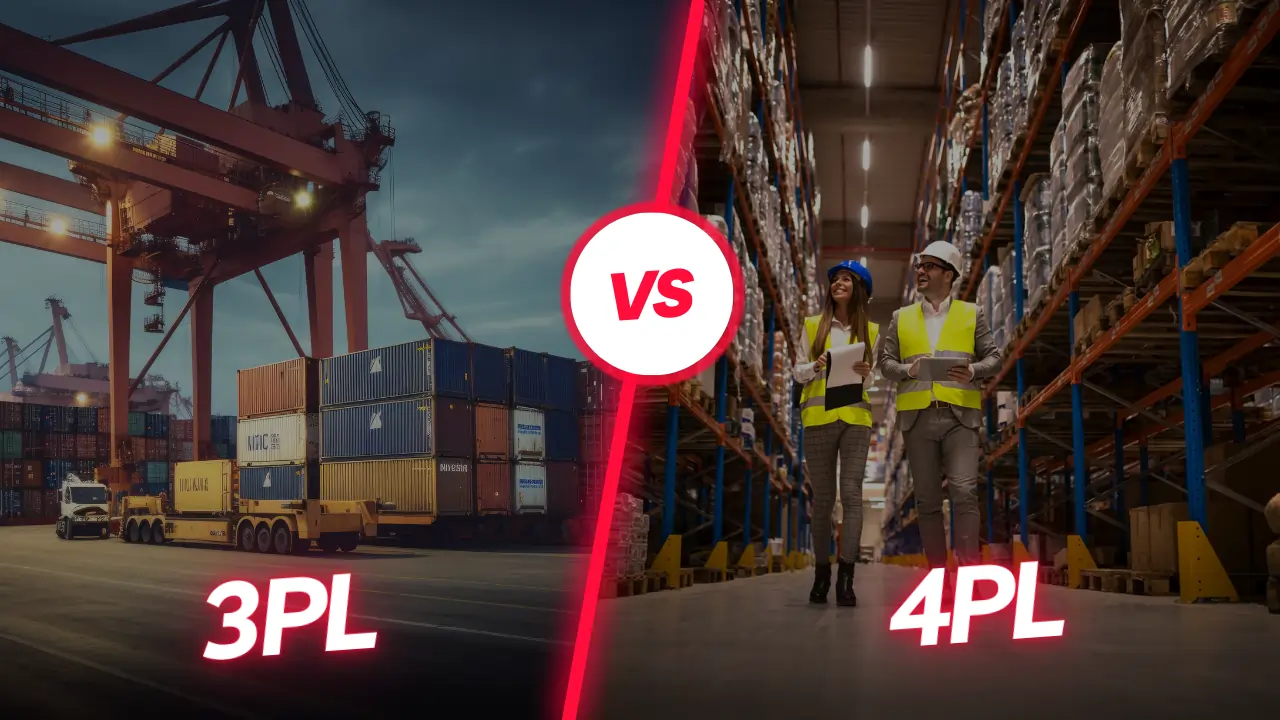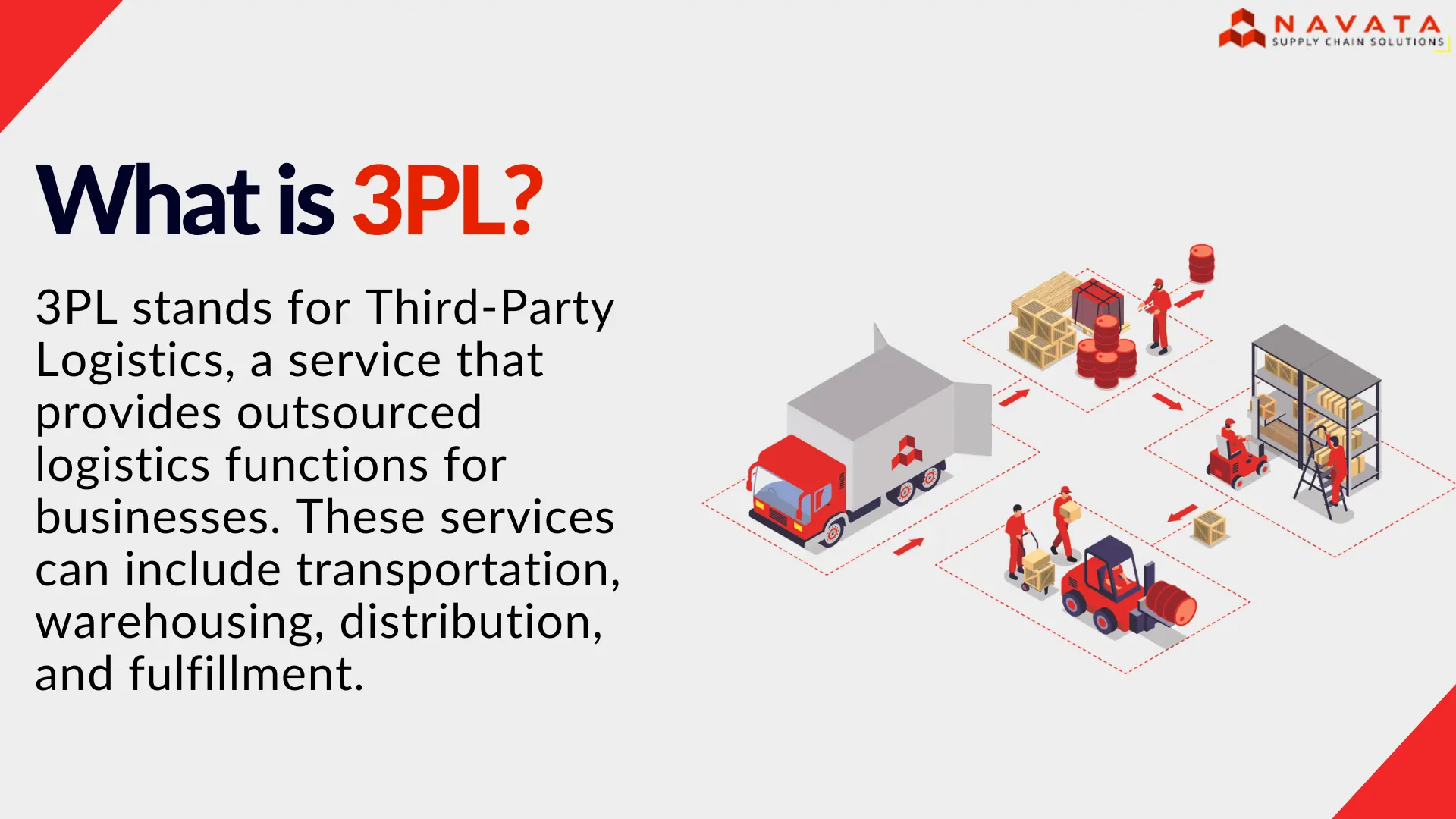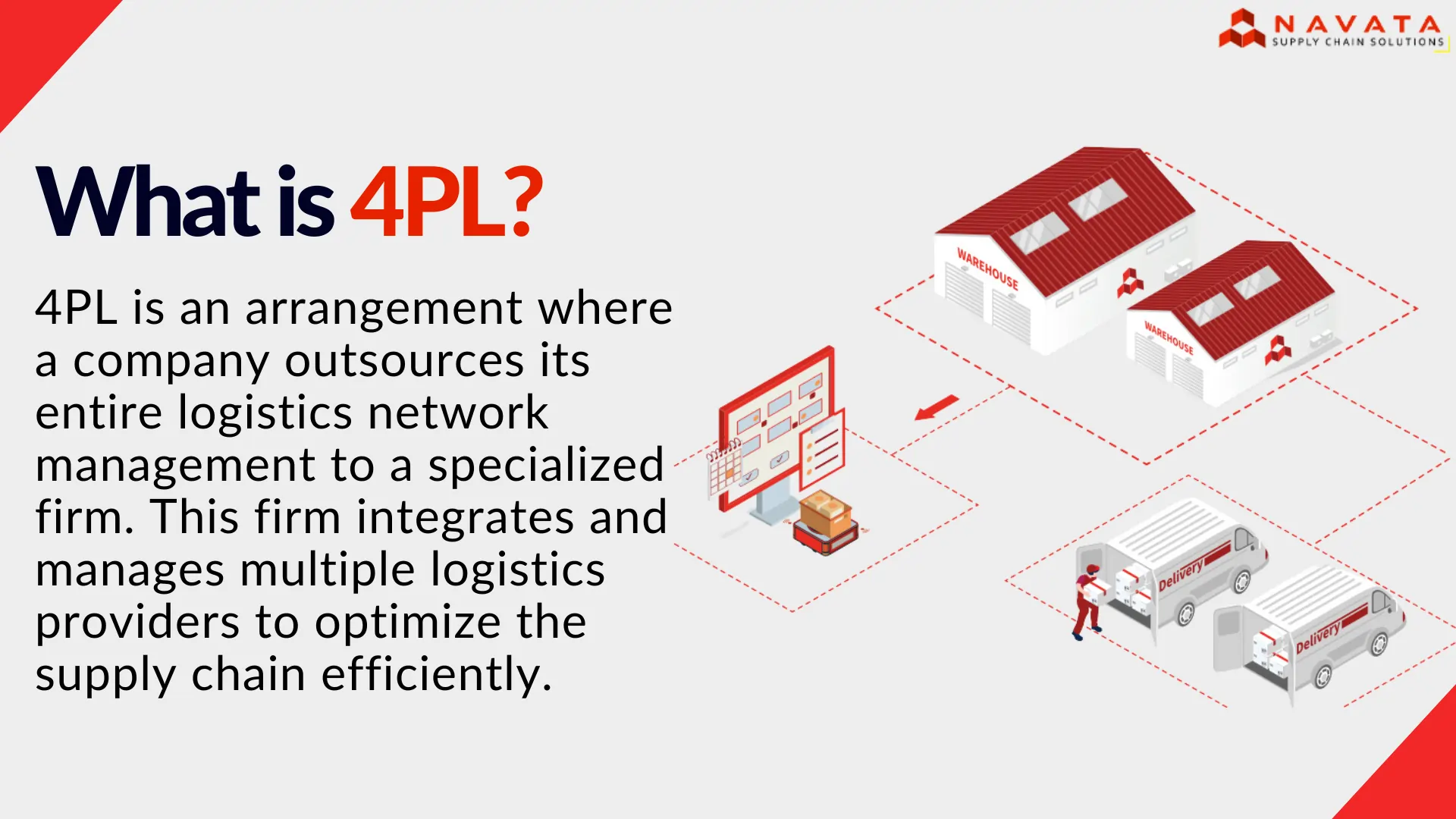3PL and 4PL
In today’s competitive business world, Supply Chain Management dictates the rules of success. Thus, to succeed, a business needs a smooth running and efficient supply chain. When we talk about supply chain management, two terms keep making rounds- 3PL and 4PL. But what do they stand for? Do they mean the same thing? Or do they represent different facets of a single operation? Let’s find out!
3PL and 4PL- Do They Mean the Same Thing?
Not by a wild chance! Even though both of these acronyms represent outsourcing supply chain services, they are very different from each other. For instance, 3PL is focused on the logistics part of a supply chain whereas 4PL represents the entire supply chain.
In order to ensure smooth operations across the supply chain, it is important to understand the differences between 3PL and 4PL. Let’s dive deep into the depths of logistics to shed light on the differences, applications, and advantages of both 3PL and 4PL providers.

What is 3PL?
Let’s start at the basics. What exactly does 3PL mean? It stands for third-party logistics. This means that the term 3PL represents the logistics of a business which are managed by an outside vendor.
A 3PL service provider looks after diverse needs of a business such as inventory management, warehousing, transportation, fulfillment of orders, processing of returns, etc. It is important to note here that not all 3PL services are the same. Thus, you can seek a 3PL provider who holds expertise in your specific logistics needs to streamline the process in a more synchronized manner.

What is 4PL?
Now that you have got an idea of what 3PL is all about, let us shift our focus to 4PL, which stands for Fourth-Party Logistics. As the name suggests, 4PL is a more comprehensive and strategic approach to logistics outsourcing. This is due to the fact that unlike 3PL providers, 4PL entities assume a broader role in supply chain management.
In case of a 4PL service, a business outsources its entire supply chain management and logistics needs to an external vendor. These vendors act as a single point of contact and manage multiple 3PL partners. They are responsible for managing resources, infrastructure and technology throughout the supply chain. Furthermore, they also offer strategic insights to improve business functions.

Differentiating 3PL and 4PL
Although both 3PL and 4PL providers offer logistics solutions, the two could not be further apart from each other. There are many key differences in terms of their scope, approach, and level of involvement. Let us discuss each of these differences in detail:
Scope of Services: As already discussed, 3PL services comprise of the logistics processes such as transportation, order fulfilment, inventory management, etc. On the other hand, 4PL services offer more comprehensive support. Right from handling resources, managing infrastructure and taking care of technological needs, 4PL service providers do it al. They also offer crucial insights and assistance in making crucial business decisions.
Level of Integration: If we look at the extent of involvement of both the service providers, 4PL service providers have a greater degree of involvement in the process. Where 3PL providers act as experts specialised in handling the logistics side of a business, 4PL providers are strategic partners who are deeply integrated into the client’s operations, offering advisory services and driving long-term improvements.
Responsibility and Accountability: 3PL providers are only responsible for certain predefined tasks that they hold expertise in. Thus, they are only accountable for executing those tasks efficiently. On the contrary, 4PL providers assume greater responsibility for supply chain performance, often acting as important decision-makers and problem solvers.
Choosing Between 3PL and 4PL
There is no set answer on whether you should go for a 3PL or a 4PL service provider. The decision depends upon multiple factors such as the complexity of the supply chain, strategic objectives, and organizational capabilities. However, if you are not sure how to evaluate your needs, here are a few points that may help:
When to Choose 3PL: If you are seeking specialized expertise for specific logistics functions, then you must go for a 3PL provider. Furthermore, if you are aiming for operational efficiency to optimize gains in certain discrete areas of the supply chain, then 3PL is the way to go.
When to Choose 4PL: If your business requires navigating through complex supply chains, consisting of multiple partners, then going for a 4PL provider will be a wise decision. You can also go for these services if you are aiming to drive strategic alignment, innovation, and continuous improvement across the entire logistics ecosystem.
Conclusion
Today’s business world is a complex and competitive landscape that requires thorough decision making and efficient delivery. Therefore, the choice whether you should go for a 3PL or a 4PL provider can significantly impact your company’s ability to streamline operations, reduce costs, and drive competitive advantage.
While 3PL providers offer specialized services and operational efficiency, 4PL providers bring a strategic lens to supply chain management, orchestrating seamless integration and driving continuous improvement. By understanding the nuances and differences between 3PL and 4PL, businesses can make informed decisions to optimize their logistics operations and achieve sustainable growth in an increasingly complex global market.
In essence, while 3PL and 4PL providers both play vital roles in the logistics ecosystem, the distinction lies in their approach, scope, and level of integration within the supply chain. Whether businesses opt for the specialized expertise of a 3PL provider or the strategic partnership of a 4PL entity, the ultimate goal remains the same: to unlock operational excellence and drive value across the entire logistics spectrum.
Thanks For Reading: Difference Between 3PL and 4PL
Powered By 360Presence
FAQ
How do 3PL and 4PL different?
3PL specializes in particular logistical services such as transportation and warehousing and 4PL provides comprehensive supply chain management by managing resources, infrastructure, and technology while also delivering strategic insights for overall business improvement.
What responsibilities do 3PL & 4PL providers have?
3PL providers are responsible for executing specific logistics tasks efficiently, such as transportation, warehousing, and order fulfillment and 4PL providers assume greater responsibility for the entire supply chain’s performance. They act as decision-makers, problem solvers, and strategic partners, managing all logistics aspects
When should a business choose a 3PL & 4PL provider?
A business should choose a 3PL provider when seeking specialized expertise in specific logistics functions and aiming for operational efficiency in certain discrete areas of the supply chain and choose a 4PL provider when dealing with complex supply chains involving multiple partners and aiming for strategic alignment, innovation, and continuous improvement across the entire logistics ecosystem.
Can 3PL and 4PL services be used together?
Yes, 3PL and 4PL services can be used together. A 4PL provider can manage and integrate multiple 3PL providers, ensuring comprehensive oversight and strategic management of the entire supply chain.
How does 3PL & 4PL contribute to cost reduction?
3PL contributes to cost reduction by optimizing logistics operations, reducing transportation and warehousing expenses, improving inventory management and 4PL contributes to strategic business growth by providing comprehensive supply chain management, driving innovation, offering strategic insights, improving overall efficiency,

